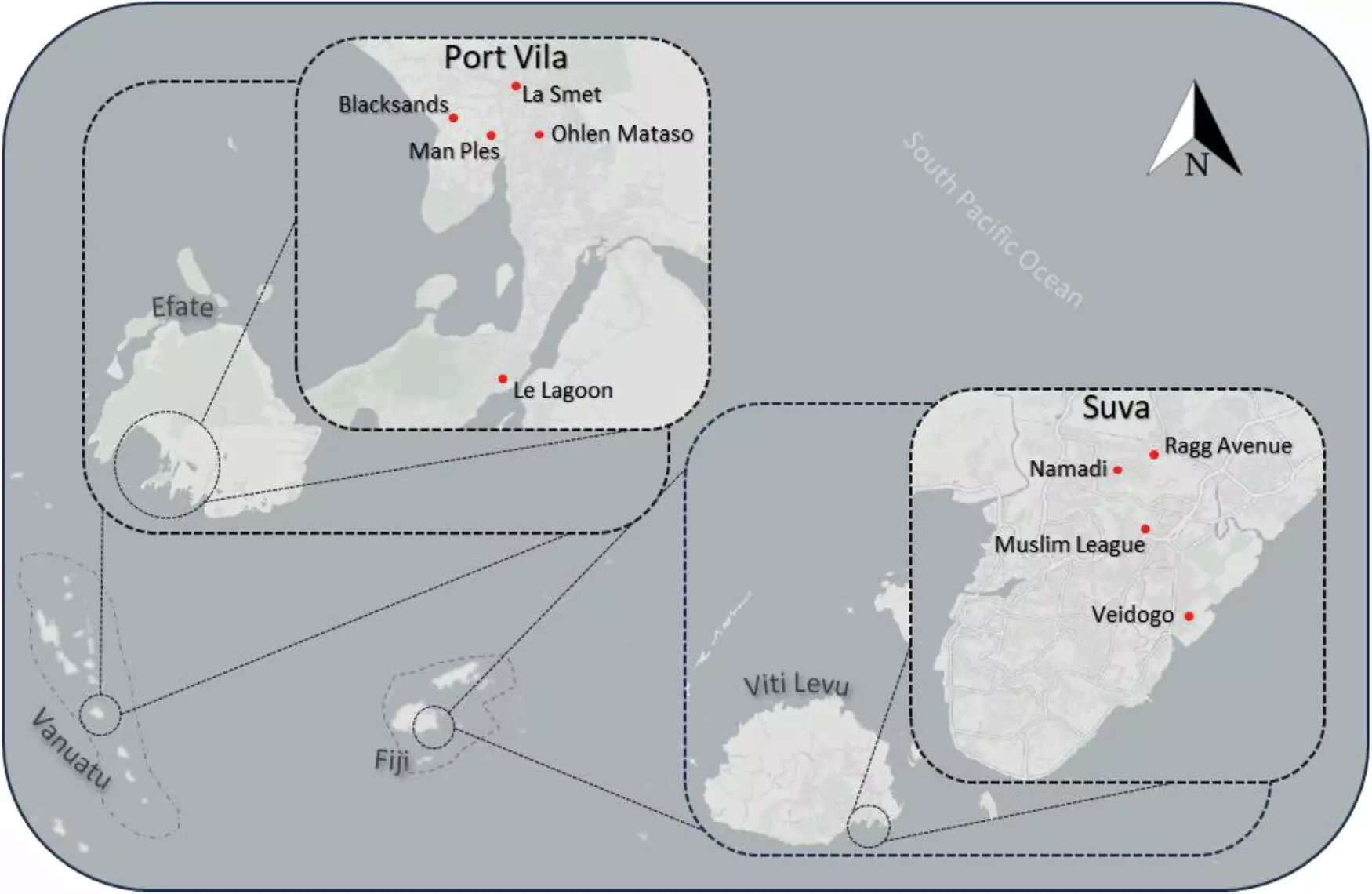The Pacific Islands are often envisioned as idyllic havens, boasting crystal-clear waters and stunning landscapes. Yet, beneath this veneer of paradise lies a pressing and distressing public health crisis. An alarming number of residents—nearly half a million—find themselves navigating the realities of life in informal urban settlements, where inadequate sanitation is the norm rather than the exception. This grave situation disproportionately affects vulnerable populations, including women, children, the elderly, and individuals with disabilities, shaping their health, well-being, and economic prospects.
Recent academic exploration into these challenges, particularly a study published in the journal *npj Clean Water*, provides critical insights into the sanitation conditions prevailing in informal settlements across Fiji and Vanuatu. Conducted in collaboration with the University of the South Pacific, the research sheds light on the urgent need for improved sanitation infrastructure in these regions, highlighting that the struggles of daily existence are intensified by a lack of basic services.
Informal urban settlements typically emerge as a consequence of inadequate affordable housing options, where residents occupy unplanned and unregulated land. In these areas, essential utilities such as sanitation, sewage systems, and electricity are often conspicuously absent. Our findings suggest that despite the presence of piped water, a striking 56% to 100% of households still resort to dangerous sanitation practices, using rudimentary dry pit toilets or cesspits with no proper plumbing or running water. These makeshift facilities exacerbate health and environmental risks, as waste generated in these installations remains within the community.
Additionally, the situation worsens during extreme weather events, with one in three households losing access to functioning toilets amidst heavy rains or cyclones. The research highlights that pit toilets are particularly vulnerable, facing four to eight times increased odds of failure during climate-related disasters compared to water-based systems. This scenario underlines the urgent need for resilient and sustainable sanitation solutions that can effectively withstand the increasingly volatile climate conditions characteristic of the Pacific region.
The Environmental and Health Consequences of Poor Sanitation
Our analysis also reveals alarming consequences linked to inadequate sanitation practices. Many households lack safe methods for managing waste from septic tanks and pits, leading to the dangerous practice of dumping sludge in open areas or contaminating local water sources. Such actions pose severe environmental hazards and public health threats, resulting in the spread of diseases like diarrhea and intestinal worms. The World Health Organization indicates that enhancing sanitation infrastructure can significantly reduce mortality rates associated with these illnesses, particularly among children.
While reports suggest a mere 3% of urban populations in Fiji and Vanuatu depend on poorly managed sanitation, our findings tell a different story, exposing a troubling disconnect. Most households in informal urban settlements rely on unsafe sanitation practices, bringing to light the critical need for sophisticated monitoring systems that can identify and differentiate between formal and informal urban areas.
Addressing the sanitation crisis in the Pacific Islands requires more than just the installation of toilets. A holistic approach is necessary, focusing on sanitation management at every stage. This entails designing an integrated service chain that guarantees reliable waste removal, treatment, and disposal, tailored to the unique challenges of informal settlements. Such an initiative must prioritize local expertise, bolster local service providers, and cultivate community ownership of sanitation systems, ensuring their long-term sustainability.
In informal settlements, the hurdles of establishing effective sanitation services are magnified by insecure land tenure and inadequate infrastructure. Nevertheless, with a substantial segment of the Pacific’s urban population residing in these communities, finding innovative and practical sanitation solutions is imperative. The sixth Sustainable Development Goal advocates for universal access to clean water and sanitation, making it essential to confront the sanitation challenges in the region.
The sanitation crisis in the Pacific Islands transcends mere infrastructure issues; it is a fundamental question of health, dignity, and economic stability for countless residents. Resolving this crisis is crucial not only for safeguarding public health but for fostering resilience among vulnerable communities facing an uncertain future. By mobilizing efforts to improve sanitation infrastructure, we have the power to enhance health outcomes, restore dignity, and support livelihoods in the Pacific Islands, marking a significant step towards a healthier and more equitable future.


Leave a Reply